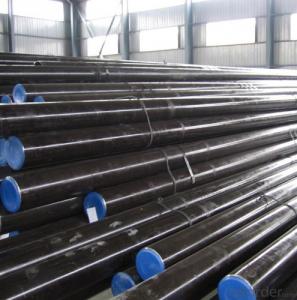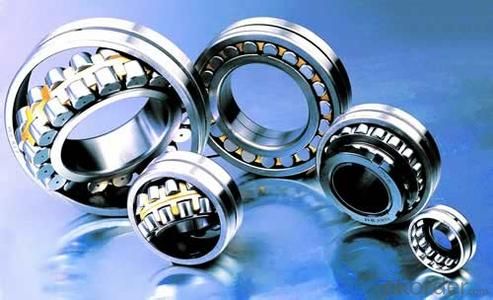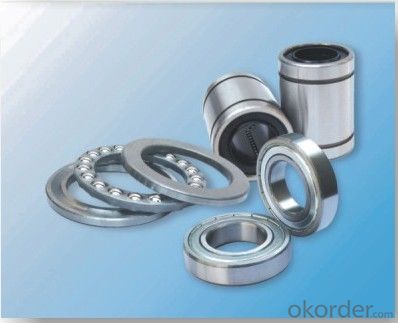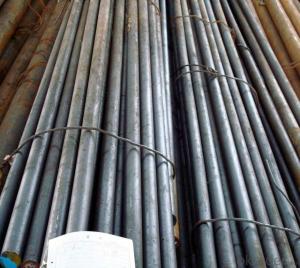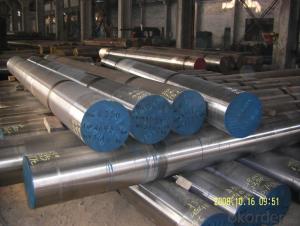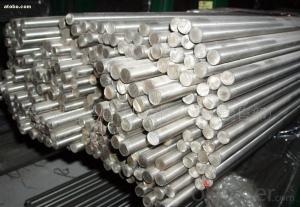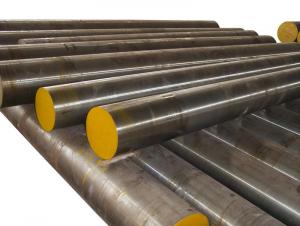Hot Rolled High Quality Bearing Steel Bar
- Loading Port:
- China main port
- Payment Terms:
- TT or LC
- Min Order Qty:
- 20 m.t.
- Supply Capability:
- 500 m.t./month
OKorder Service Pledge
OKorder Financial Service
You Might Also Like
Product Description:
OKorder is offering Hot rolled Bearing Special Steel Bar at great prices with worldwide shipping. Our supplier is a world-class manufacturer of steel, with our products utilized the world over. OKorder annually supplies products to European, North American and Asian markets. We provide quotations within 24 hours of receiving an inquiry and guarantee competitive prices.
Product Applications:
Our products have been used in all kinds of areas, such as aviation, aerospace, navigation, nuclear, energy, chemical industry, electronic information, petrochemical, automotive, instrument and meter, Communication ,transportation, and medical instruments, etc. Bearing ring,steel rolling mill ,machinery, 100Cr6 bearing steel ball is widely used in high-speed and low-noise bearing, bicycle, motorcycle, automobile, bags, electronics.
Product Advantages:
OKorder's Hot rolled Bearing Special Steel Bar are durable, strong, and resist corrosion.
Main Product Features:
· Premium quality
· Prompt delivery & seaworthy packing (30 days after receiving deposit)
· Corrosion resistance
· Can be recycled and reused
· Mill test certification
· Professional Service
· Competitive pricing
Product Specifications:
1. Dimensional sizes: Thickness: 14~100mm.Length:3000~5800mm,Diameter :14-500mm
2.Chemical composition:
3. Grade: SAE51200/ GCr15 / 100cr6
4. Heat Treatment:
Soft annealing: heat to 680-720°C, cool slowly.
Hardness after annealing: Max. 241 HB
Hardening: 820 - 850 °C
Normalizing temperature: 840-880°C
Tempering: 540-680°C
5. Surface requirements: Black, grinding, bright, polish
Packaging & Delivery of Bearing Steel
Mark: Heat No. will be cold stamped and Steel grade, diameter (mm), length (mm), and the manufacturer LOGO and weight (kg) is painted.
Standard seaworthy packing or as customer required
Delivery time: Within 30 days after order is confirmed.
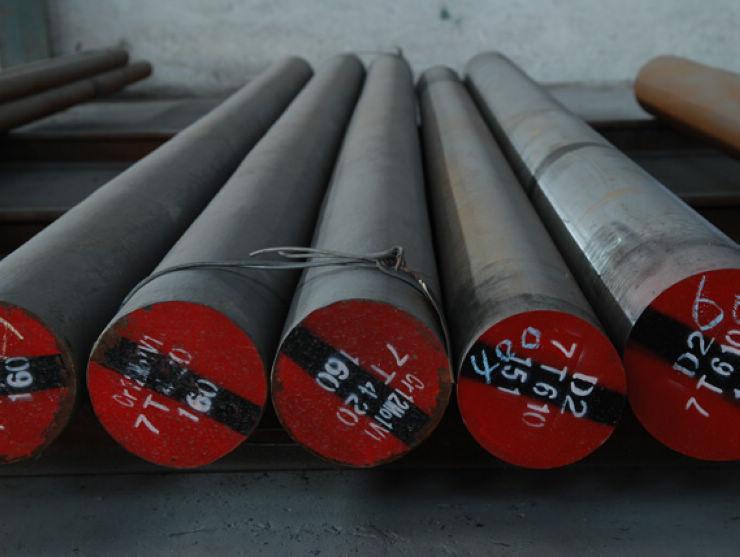
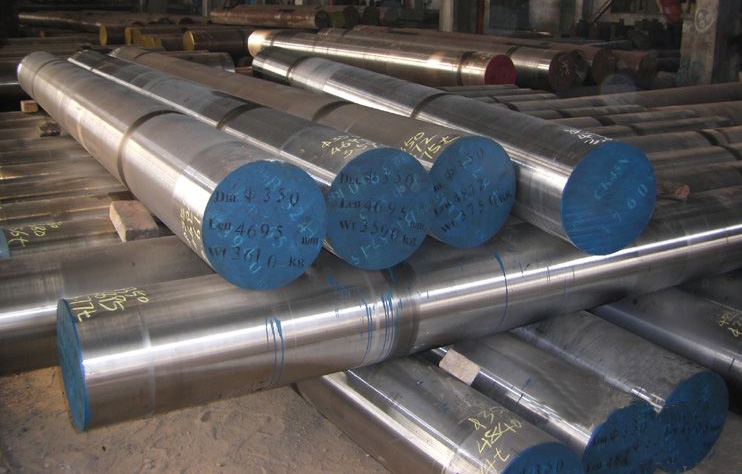
FAQ:
Q1: Why buy Materials & Equipment from OKorder.com?
A1: All products offered byOKorder.com are carefully selected from China's most reliable manufacturing enterprises. Through its ISO certifications, OKorder.com adheres to the highest standards and a commitment to supply chain safety and customer satisfaction.
Q2: How do we guarantee the quality of our products?
A2: We have established an advanced quality management system which conducts strict quality tests at every step, from raw materials to the final product. At the same time, we provide extensive follow-up service assurances as required.
Q3: How soon can we receive the product after purchase?
A3: Within three days of placing an order, we will begin production. The specific shipping date is dependent upon international and government factors, but is typically 7 to 10 workdays.
Q4: What makes stainless steel stainless?
A4: Stainless steel must contain at least 10.5 % chromium. It is this element that reacts with the oxygen in the air to form a complex chrome-oxide surface layer that is invisible but strong enough to prevent further oxygen from "staining" (rusting) the surface. Higher levels of chromium and the addition of other alloying elements such as nickel and molybdenum enhance this surface layer and improve the corrosion resistance of the stainless material.
- Q: How does special steel contribute to the marine industry?
- Special steel plays a crucial role in the marine industry by offering exceptional strength, durability, and corrosion resistance, making it ideal for various marine applications. It is extensively used in the construction of ships, submarines, offshore platforms, and other marine structures, ensuring their structural integrity and safety. Additionally, special steel is used in manufacturing propellers and other critical components, enhancing efficiency and performance. Overall, special steel contributes significantly to the marine industry by providing reliable and high-quality materials that withstand harsh marine environments and support the growth and advancement of the sector.
- Q: How is special steel used in the aerospace industry?
- Special steel is used in the aerospace industry for various applications due to its exceptional strength, durability, and resistance to extreme temperatures. It is commonly utilized in the manufacturing of aircraft structures, engine components, landing gear, and fasteners. The high strength-to-weight ratio of special steel enables the construction of lightweight yet robust parts, contributing to improved fuel efficiency and aircraft performance. Additionally, its ability to withstand harsh environmental conditions and maintain structural integrity makes it indispensable for ensuring the safety and reliability of aerospace systems.
- Q: What are the different heat treatment processes for special steel?
- There are several different heat treatment processes for special steel, including annealing, quenching, tempering, case hardening, and precipitation hardening.
- Q: What are the limitations of using special steel in electrical applications?
- Using special steel in electrical applications comes with several limitations. Firstly, it tends to be more expensive compared to other commonly used materials like copper or aluminum, making it less cost-effective for large-scale projects. Another drawback is its relatively high electrical resistivity, which hampers its efficiency in conducting electricity. This results in higher energy losses and lower overall efficiency in electrical systems, which is particularly concerning for energy-efficient applications like power generation or transmission. Moreover, special steel lacks the malleability and ductility found in materials like copper, making it less suitable for applications requiring shaping or forming. Working with it can be more challenging and may necessitate complex manufacturing processes. Furthermore, special steel is more susceptible to corrosion compared to materials like copper or aluminum. In environments with high humidity or moisture exposure, this can significantly limit its use in electrical applications. Corrosion not only degrades the steel's electrical properties but also reduces its lifespan, leading to increased maintenance and replacement costs. Lastly, special steel may not be as readily available or easily sourced as other materials commonly used in electrical applications. This can present challenges in terms of availability, lead times, and potential disruptions in the supply chain, ultimately impacting project timelines and overall productivity.
- Q: How does special steel contribute to improving product aesthetics?
- Special steel can contribute to improving product aesthetics in several ways. Firstly, special steel can be manufactured with unique finishes and textures, enhancing the overall visual appeal of a product. This can include brushed, polished, or matte finishes, adding a touch of sophistication and elegance. Secondly, special steel can be shaped and formed into intricate and precise designs, allowing for the creation of visually appealing and intricate product components. Additionally, the strength and durability of special steel can enable products to have sleek and slim designs, reducing bulkiness and enhancing the overall aesthetics. Overall, special steel offers designers and manufacturers a versatile material that can enhance the visual appeal and aesthetic quality of their products.
- Q: What are the different certifications available for special steel?
- There are several certifications available for special steel, depending on the specific industry and application. Some of the commonly recognized certifications include: 1. ISO 9001: This certification ensures that the special steel manufacturer has implemented and maintained a quality management system that complies with international standards. It demonstrates the company's commitment to consistently providing products that meet customer requirements. 2. ISO 14001: This certification focuses on environmental management and ensures that the special steel manufacturer has implemented environmentally friendly practices in their operations. It demonstrates the company's commitment to reducing their environmental impact. 3. ASME (American Society of Mechanical Engineers) certifications: ASME offers various certifications for special steel used in pressure vessels, boilers, and other applications. These certifications ensure that the special steel meets specific quality and safety standards required by the industry. 4. PED (Pressure Equipment Directive): This certification is required for special steel used in pressure equipment in the European Union. It ensures that the steel meets specific safety and quality requirements. 5. NACE (National Association of Corrosion Engineers) certifications: NACE offers certifications for special steel used in corrosive environments. These certifications ensure that the steel has the necessary resistance against corrosion and can withstand harsh conditions. 6. API (American Petroleum Institute) certifications: API offers certifications for special steel used in the oil and gas industry. These certifications ensure that the steel meets specific quality and performance standards required for various applications in the industry. 7. ASTM (American Society for Testing and Materials) certifications: ASTM offers various certifications for special steel based on specific standards and specifications. These certifications ensure that the steel meets the required mechanical properties, chemical composition, and other criteria. It is important for manufacturers, suppliers, and end-users to consider these certifications when selecting special steel for their specific applications. These certifications provide assurance and confidence in the quality, safety, and performance of the special steel products.
- Q: How does special steel contribute to the aerospace material weight reduction?
- Special steel contributes to aerospace material weight reduction through its unique properties and characteristics. Special steel alloys such as stainless steel, titanium alloys, and high-strength low-alloy steel offer superior strength-to-weight ratios, allowing for the construction of lightweight yet robust components and structures in aircraft. These steel alloys possess excellent mechanical properties, including high tensile strength, hardness, and corrosion resistance, which enables them to withstand extreme conditions and reduce the need for additional material reinforcement. By utilizing special steel, aerospace manufacturers can design and fabricate lighter aircraft, resulting in improved fuel efficiency, increased payload capacity, and enhanced overall performance.
- Q: How does special steel contribute to the performance of industrial machinery?
- Special steel contributes to the performance of industrial machinery by providing enhanced strength, durability, and resistance to corrosion and wear. It enables the manufacturing of components that can withstand high temperatures, heavy loads, and harsh operating conditions, thereby improving the overall efficiency and lifespan of the machinery. Additionally, special steel alloys offer excellent machinability and formability, allowing for precise and complex designs, ultimately enhancing the functionality and reliability of industrial machinery.
- Q: What are the properties of electrical steel?
- Electrical steel, also known as silicon steel or transformer steel, possesses several key properties that make it suitable for various electrical applications. Firstly, it exhibits low core loss, meaning it has a low tendency to dissipate energy in the form of heat when subjected to alternating magnetic fields. This property is crucial for efficient power transmission and distribution. Additionally, electrical steel demonstrates high magnetic permeability, enabling it to efficiently conduct and amplify magnetic flux, essential for transformers and other electrical devices. Furthermore, it has a high electrical resistivity, allowing it to minimize eddy current losses, which occur when currents circulate within the material. Lastly, electrical steel exhibits high saturation flux density, making it capable of handling high magnetic fields without reaching its magnetic saturation point. Overall, these properties make electrical steel an ideal material for power generation, transformers, motors, and other electrical equipment.
- Q: How does tungsten contribute to the properties of special steel?
- Tungsten is a critical element that contributes significantly to the properties of special steel. One of the major benefits of tungsten in steel is its ability to enhance strength and hardness. It forms a solid solution with iron, resulting in a fine-grained microstructure that increases the overall toughness and wear resistance of the steel. Additionally, tungsten helps to improve the high-temperature strength of special steel. It has a high melting point and maintains its strength even at elevated temperatures, making it ideal for applications that require resistance to heat and thermal stress. This characteristic allows special steel with tungsten to be used in environments with extreme temperatures, such as in gas turbines, rocket nozzles, and cutting tools. Tungsten also plays a crucial role in improving the corrosion resistance of special steel. It forms stable carbides that protect against corrosion and erosion, making the steel more durable and long-lasting. This is particularly valuable in industries where the steel is exposed to corrosive environments, such as chemical processing, marine applications, and oil and gas exploration. Furthermore, tungsten contributes to the machinability of special steel. It helps in reducing the built-up edge during cutting operations, resulting in improved surface finish and longer tool life. This characteristic is highly advantageous in industries that require precision machining, such as automotive, aerospace, and tool manufacturing. In summary, tungsten is a vital element in special steel as it enhances strength, hardness, high-temperature performance, corrosion resistance, and machinability. Its unique properties make it an indispensable component in the production of high-quality steel used in various industries.
Send your message to us
Hot Rolled High Quality Bearing Steel Bar
- Loading Port:
- China main port
- Payment Terms:
- TT or LC
- Min Order Qty:
- 20 m.t.
- Supply Capability:
- 500 m.t./month
OKorder Service Pledge
OKorder Financial Service
Similar products
Hot products
Hot Searches
Related keywords
